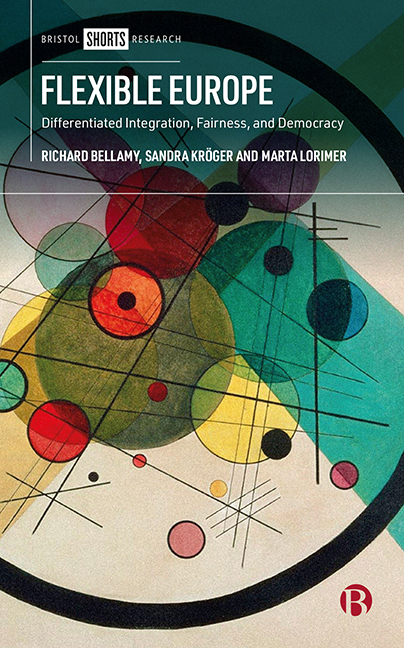Book contents
- Frontmatter
- Contents
- List of Tables
- List of Abbreviations
- About the Authors
- Acknowledgements
- Introduction
- PART I Normative Perspectives on Differentiated Integration
- PART II Political Party Perspectives on Differentiated Integration
- Conclusion
- Appendix A List of Respondents
- Appendix B Interview Questions
- Appendix C Survey Questions
- Notes
- References
- Index
six - Party Views on the Democratic Dilemmas of Differentiated Integration
Published online by Cambridge University Press: 15 September 2022
- Frontmatter
- Contents
- List of Tables
- List of Abbreviations
- About the Authors
- Acknowledgements
- Introduction
- PART I Normative Perspectives on Differentiated Integration
- PART II Political Party Perspectives on Differentiated Integration
- Conclusion
- Appendix A List of Respondents
- Appendix B Interview Questions
- Appendix C Survey Questions
- Notes
- References
- Index
Summary
This chapter addresses the concern that DI might undermine political equality among member states, thereby creating the possibility for some member states to dominate others. We relate this concern to what Max Heermann and Dirk Leuffen identify as a gap in the literature on DI – namely, the degree to which it has ‘remained remarkably silent with respect to questions of institutional design’ (Heermann and Leuffen, 2020, p 2). This silence is surprising given that DI can impact the institutional structure and decision-making processes at the EU level, potentially impairing their democratic character. We explored these issues through an analysis of the views political party actors have of DI's dominating potential. We asked whether they perceive DI as creating domination, and how they consider its dominating potential might be mitigated through appropriate forms of governance for differentiated policy areas.
The text unfolds as follows. We start by setting out the democratic dilemmas of DI from a theoretical perspective. The ensuing empirical analysis engages with party actors’ views in regard to the institutional impact and governance structures of DI. The conclusion discusses the findings’ wider implications for the institutional design of DI.
The democratic dilemmas of differentiated integration
How does DI relate to domination? Following Philip Pettit, we define domination as the capacity of an agent or agency to arbitrarily impose or influence another agent(s) or agency(s) to do their will, without having to deliberatively engage with or consider the reasons and interests of the dominated (Pettit, 2010, pp 73– 5, 77– 9). The potential for such domination arises from the conjunction of three circumstances – an imbalance of power, dependency, and the unconstrained or discretionary rule of an agent or agency (Lovett, 2010, pp 119– 20). By implication, a condition of non-domination involves a democratic community in which each member – in the case of the EU either an individual citizen or member state – has an equal status in determining its collective policies and common rules and must involve the others when formulating them, none is dependent on any of the others, and all are equally affected by the overall package of rules and policies, if not necessarily by every single one of them (Bellamy, 2019, pp 69, 90– 3).
- Type
- Chapter
- Information
- Flexible EuropeDifferentiated Integration, Fairness, and Democracy, pp. 122 - 137Publisher: Bristol University PressPrint publication year: 2022

